Study Bay Coursework Assignment Writing Help
Table of Contents
America’s Role in Globalization
America’s Role in World Trade and Investment
Reason for declining of US Hegemony
Trumps Policy towards China and Canada
Introduction
Globalisation means the opening up of economies to international competition, allowing goods, ideas, capital and some people to move more freely between countries. Many countries around the world have embraced these aspects of globalisation because governments have become convinced that a more dynamic economic performance awaits countries that more closely integrate with the global economy. And yet, because it brings with it more rapid domestic economic change, globalisation can be disruptive and has its pros and cons. (Gruen, n.d.)
The discussion in this essay will be based on the role of United States in globalisation and how it emerged as a global player and made an impact in the trade and investment. The discussion will further include the policies and their influence on the international trade and investment that aims towards American hegemony. And, the approach of trump’s administration will be discussed on the topic of retreating from globalisation.
Discussion
Thomas L. Friedman believes that trade at a global level, outsourcing, and efficient logistics are the main factors for flattening the global economy. Globalisation has created many opportunities for businesses and people. It helped in creating more jobs and raised the income level which in return improved the standard of living, especially in the developing countries (Smith, 2018 p.7). Multinational companies are found to be relocating in the developing countries due to the ease of transportation and access to cheap labour, and they can get the suitable location according to the nature of their products and the customers whom they are targeting. The sharing of knowledge, information and easy access to market have been a significant cause in the globalisation process. Since 2001, there has been a considerable rise in different integration levels and as the global connectedness show the major factor is sharing of information as shown in Figure 1.
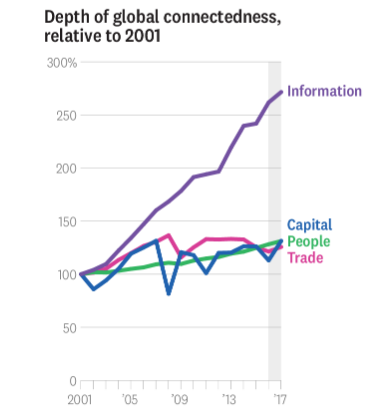
Figure 1 Global Connectedness Source: World Bank
America’s Role in Globalization
The role of policymakers has become prominent after World War II, and since then they have contributed at various stages. Their stable economy has been constructive for the world economy which has brought propensity and peace around the world. America and some other developed countries are considered as the champion of globalisation and their roles in improving the standard of living of the developing nations are immense. As a leading nation, the U.S has developed many global institutions which have played their role in maintaining peace, negotiating trade and solving other global issues (Nagel & Burnete, 2018 p.215). Figure 2 illustrates how countries have decreased tariffs to make ease for imports of goods from other countries.
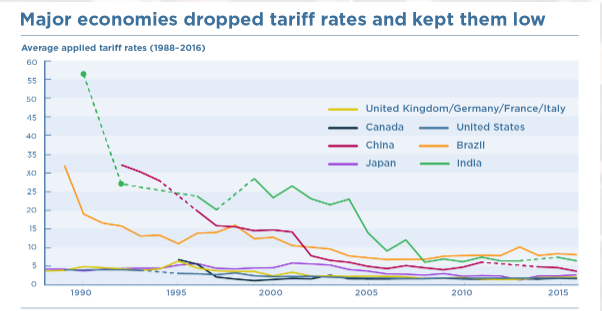
Figure 2 Tariff level, Source: World Bank Data
America’s Role in World Trade and Investment
The U.S has claimed the position of an economic leader with a remarkable technological development, competitiveness and productivity growth. The financial connection that the U.S has tied with the rest of the world is the key to its success that it has achieved through globalisation. The openness of foreign products with a low tariff in the U.S market, a stable economy with a stagnant inflation rate and the firm fed rate has made the U.S economy both attractive and benchmark for the rest of the world (Waltz, 2000 p.50). Its market is considered as a minimum risk market, and in case of any crisis, investors rush there to make safe investments. For instance, in the Asian financial crisis, investors rushed to the U.S market, ringing inflows of investment in the country as indicated in figure 3.
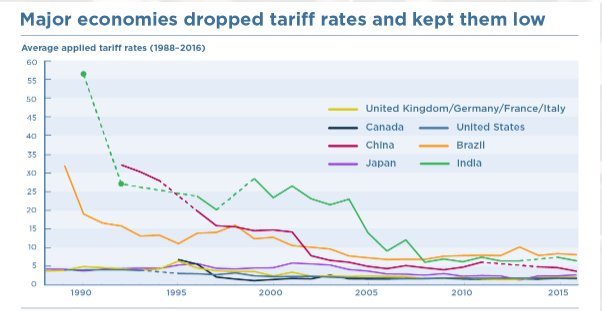
Figure 3. Tariff rates of major economies
After the end of World War I, the U.S became the world superpower in the presence of another superpower, the Soviet Union. Though the factors of determining a country’s power were its military, economic and political but the U.S also dominated in international affairs making its strength more obvious. (Mourdoukoutas, 2017)
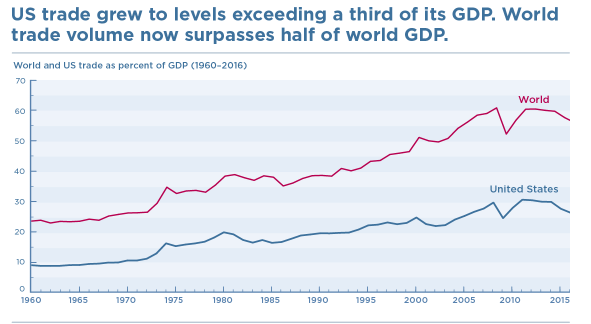
Figure 4. The U.S and World GDP from 1960 to 2015 Source: World Bank data
If we would like to see the benefit of globalisation through data, according to world trade report, the world exports in 1913 before the World War I was 7.9 % of the total world grand domestic product (GDP). It fell to 5.5 % after World War II, in 1950. However, in 1998 the percentage had plunged to 22.8 %, and in 2004 the rate rose to 30%.
The two international institutions which were developed by the U.S. also come under globalisation. The U.S developed an International Monetary Fund (IMF) with the aim to provide emergency loans to countries with provisional balance-of-payments problems and World Trade Organisation (WTO), created in 1995, which serves the purpose to help and settle trade disagreements among countries globally. U.S after World War II, with the help of both organisations, has developed the progression of the economy globally (Litan, 2000).
U.S Hegemony
As we discussed above that globalisation has an impact on countries around the world, while for the U.S this can be different. Being a dominant player in the politics and economics of the world, the U.S has an impact on the pace of globalisation. After World War II, the U.S conciliated between different nations and thus emerged as a dominant player. The dominance of the U.S has existed for long, and there are several reasons for the hegemony that the Americans have created. The reason has been its open economy or interdependence of nations on the U.S. This strategy helped the U.S in making a block of countries which it persuaded in its supports while abandoned those who did not comply with their policies. Experts believe that the U.S had been hegemonic but isolationist, and liberal but intolerant. Throughout history, powerful countries have also been influential in international politics. However, the U.S has more power due to connectivity in the international system.
Consequently, the policies of the United States have an unparalleled impact at world level. Before, The Soviet Union emerged as a rival to the U.S, but they failed to overpower the US’s economic growth (Layne, 2008 p.13). The fall of the Soviet completed the hegemony of the U.S. Currently, the U.S has a massive deficit, debt crisis and power agency reports, and the focus is to bring the country back from these issues.
The U.S rose to power after the downfall of the colonial powers, and since then its foreign policies and supra-national institutions are in the best interest of the nation. After the War, the main institutions that influence the world were shifted to the country such as the United Nations, International Monetary Fund and World Bank. It gave the country some more power and controlled the proceedings in these important institutions (Layne, 2008 p.13).
American Liberalism.
The American liberalism was affected by a little reliance on external resources. The importing sector in America was insufficient, and there was little protection, and this approach was opposed by theories for free trade (Antonio, 2017 p.67). The theory of Stolper-Samuelson states that trade effects unskilled labour, but in America, this section has an inadequate representation (Leamer, 2018 p.195). In comparison to the working class in Europe, their trade unions are strong, and they have support in the political parties. The American industries like textiles, steel and auto-motive industry have lost their supremacy. The foreign policy of the U.S is oriented towards liberalisation because the external sector in the country is economically stable to international competition. Due to this factor, the U.S liberalism in the domestic industry goes unchecked and has become very extreme and stiff.
The concept of neo-liberalism, which is a policy model of economics that transfers the authority of economic factors from public to private sector, has a connection to different economic policies by President Ronald Reagan. Neoliberalism is oriented towards the deregulation of financial markets. Some economic experts believe that the financial crash of 2008 and 2009 was due to neo-liberal policies in the 1970s and 1980s.
The first criticism of neoliberalism is that globalisation is reflected as negative because the sovereignty of nations is damaged. The second issue is providing giving more power to the private sector which results in a decrease in efficiency. These criticisms are based on the limited world resources and a view of neoliberalism as anti-democratic which lead to exploitation, injustice and poverty.
The agreement of Bretton Woods, established in 1944 for international exchange rate flotation, pegged the price of gold to a dollar and other currencies to the dollar (Helleiner, 2017). This establishment did undue favour to America, which could now influence the financial and monetary market of the world.
The continuation of American hegemony has been played through different strategies by its policymakers. It has been shaped through various organisations and agencies, economic and financial factors. These strategies have an overall effect at a global level. If we observe the political and economics of the European countries, they are influenced and shaped on the American pattern after the post-war period (Pierce et al., 2018 p.210). In contrast to this, Asian countries have been more reliant on the American market. Moreover, due to the regional similarity in Asia the American hegemony have a significant influence, and the development continues.
Reason for declining of US Hegemony
It is a general perception that China will replace the U.S as the hegemonic power. The rapid economic growth and rapid advancement in military modernisation would make China the most powerful country in the world (Champion, 2018). Russia has also regained its place which it had at the time of the cold war. The military intervention of Russia with Ukraine has shocked the media and political leaders. Europe can also be a potential hegemonic power because of Britain leaving the European Union so the potential issues like economic slowdown and the rising popularity of nationalism have been removed from Europe so it can also be a potential hegemonic threat to the U.S in the future.
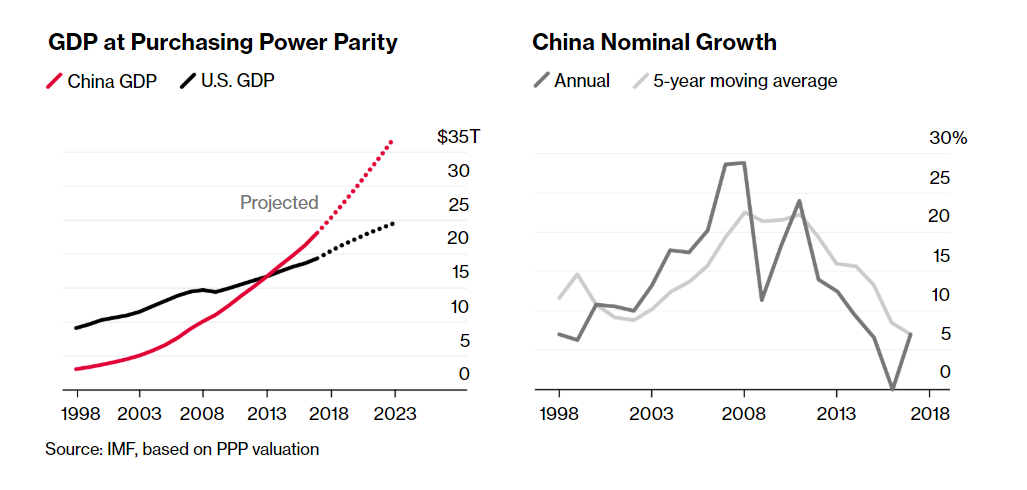
America’s First Approach
There have been many developments and crisis at the international level during the last decades. China has emerged very quickly with its communist approach, a robust Russian Federation, a destabilised Middle East and huge progress in technology, especially artificial intelligence.
For the U.S, these are some concerning issues which threaten its existential status. So, under Donald Trump, the strategy of America has changed, and they are focusing and prioritising their economy. At the international level, there is uncertainty about the future (Robertson, 2017). In economic terms, it is evident that American dominance is diminishing. Asia is getting stronger with the creation of BRICS development bank and the “One Belt One Road initiative”, the project of China connects it with the regional countries through land and sea routes. Due to these shifts, the Americans have been concentrating on sustaining their role and changing their policies in this matter.
The vulnerability of trade competitors and retention of power has forced the U.S to make some policy changes (Desai, 2013). This change is not just with America. Similarly, this can be observed in Britain after Brexit that the major economies are shifting towards nationalism, and Haul Paulson, the former US Treasury Secretary support this notion. The term used for this idea is anti-globalisation, and the supporters in America state that globalisation has stolen their jobs. Therefore, there is a huge challenge for the idea of globalisation which has benefited the world for so long.
Critics have identified income disparity which has happened due to globalisation which is referred to like 1 % and the rest of the country. As per the analysis of Professor Saez, the income level of the top 1 % has increased by 37% from $990,000 in 2009 to $1,360,000 in 2015. When compared to the bottom level during this time, the growth from 2006 to 2015 is 7.6% from $45,300 to $48,800. (Saez, 2016)
The American policymaker is stressing on such policies which could lessen the effect of such consequences due to globalisation. Some of the suggested areas are as follow:
- Education: The dimension of learning is changing, and it is shifting from the traditional system to skill based. Therefore, the government should support adult to acquire training and to provide them with grants.
- Salary: The importance of the service sector is increasing such as healthcare, education and social well-being. So, new policies related in this sector is significant,
- Mobility: A mobility of markets is necessary for the current era. The businesses should be accustomed to moving in the country, and if relocation is required, the government should provide incentives.
- Infrastructure: Maintaining a good infrastructure is vital for the progress of even developed countries.
The concept of globalisation has been celebrated for the benefits it has provided, but the integration has some adverse effect on some parts of the world. This is clear from the war on terrorism in the Middle East.
The current trend shows a strategy of isolation or isolationism in the American scenario as some of the Congress members distanced themselves from the proposed Syrian vote. As the security threat that was viewed as a major problem during the last decade is diminishing and it is time for the American policymakers to rethink their role as a hegemonic and the benefit they are receiving at this role.
Isolationism may not be a good strategy for a country like America which has influence and commitment in different countries and at different levels. A withdrawal from the commitments is going to damage its economy. (Smith, 2017)
The energy sector in America is getting better which is decreasing its reliance on other countries. Surprisingly, that has a different effect on the superpower as it has influenced the global economy due to its energy demand from other nations. Due to energy efficiency, the imports are decreasing, and there is an effect of buying habit in the manufacturing and chemical sector. Due to globalisation, there has been a rapid change in the technology sector in the US, and the policymakers have also given tax benefits. Consequently, energy independence is lowering the role and influence of the United States. (Schindler, 2018)
Trumps Policy towards China and Canada
The trump administration has been strict on some issues on a global level. As per his electoral campaign, he changed the conditions of NAFTA that is Northern American Free Trade Agreement while majorly opposing Canada for undue favour in the deal. On the other hand, his policies on China also took an extreme level with a huge tariff on Chinese products.
The trump administration replaced the 24-year-old deal of NAFTA with the new US-Mexico-Canada Agreement (USMCA). The main critic of the administration behind NAFTA was the undue favour it has been providing especially to Canada (Gereffi, 2017). As part of its liberal strategy, regionalism was a factor but in the trump administration that has seen a swing with replacement or withdrawal of the country from various deals and positions.
Similarly, the US also levied a tariff on the world second biggest economy, China, which started a trade war between the countries and thus impacting the global economy (Townshend, 2017 p.11). The major complaint has been the trade practices that China has adopted. The tariff amount in China reached $250 billion in 2008. The illustration of US imports from China shows that $53 billion which was already applied to Chinese products increased with an extra $200 billion.
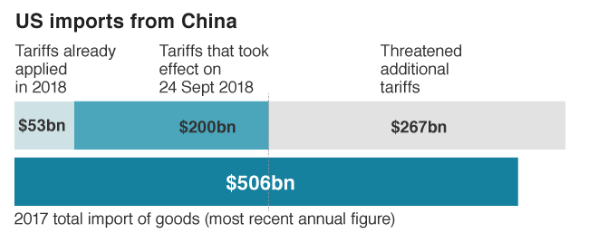
This clearly shows that America is retreating from the idea of globalisation. No doubt, the question in this scenario will be about the feasibility of this strategy in the long-run. It does not seem possible that a country becomes self-marginalised in a world which is even more connected and interdependent.
Conclusion
Globalisation has played a significant role in the development in almost every country. Since, the Second World War, the rapid change and improvement in technology and human progress is a product of global connectivity and acceptance. America becomes the super-power after the war with its stable economy and a strong military. Its role over time has been positive and negative. The country has been part of the development and the reason for some conflicts. Overall, the oversight of the country position has been hegemonic at the world level as it has pushed its rivals.
In the current development, the trump administration has a different strategy and narrative for the U.S. He is going away from the previous strategy, and his approach is America first. At this level where globalisation has an immense penetration, and it is difficult to distance a nation from it. The stakes are higher, so there is no possibility of retreating from globalisation.
References
- Antonio, R.J., 2007. The cultural construction of neoliberal globalisation. The Blackwell companion to globalisation, p.67.
- Champion, M. (2018). Bloomberg – does china have what it takes to become a superpower? [online] Bloomberg.com. Available at: https://www.bloomberg.com/graphics/2018-china-superpower/
- Desai, R., 2013. Geopolitical Economy: After US hegemony, globalisation and empire (the future of world capitalism). London: Pluto Press.
- Elliott, L. (2018). The truth is that Trump has a point about globalisation | Larry Elliott. [online] the Guardian. Available at: https://www.theguardian.com/commentisfree/2018/sep/26/donald-trump-globalisation-nation-state.
- Gruen, D. (n.d.). [online] Rba.gov.au. Available at: https://www.rba.gov.au/publications/confs/2002/pdf/intro-2002.pdf.
- Gereffi, G., 2017. NAFTA and global value chains.
- Helleiner, E., 2017. Incremental Origins of Bretton Woods. International Politics and Institutions in Time, 214.
- Hennigan, W. (2018). http://time.com. [online] Time. Available at: http://time.com/5406130/we-reject-globalism-president-trump-took-america-first-to-the-united-nations.
- Joseph Nye, Is the American Century Over? (Cambridge: Polity Press, 2015), 48.
- Layne, C., 2008. China’s challenge to US hegemony. CURRENT HISTORY-NEW YORK THEN PHILADELPHIA-, 107(705), p.13.
- Leamer, E.E., 2007. A flat world, a level playing field, a small world after all, or none of the above? A review of Thomas L Friedman’s The World is Flat. Journal of Economic Literature, 45(1), pp.83-126.
- Litan, R, 2000, The Globalization Challenge: The US role in shaping World Trade and Investment, Brooking Article
- Mourdoukoutas, P. (2017). Globalization Has Done A Lot Of Great Things For Americans. [online] Forbes.com. Available at: https://www.forbes.com/sites/panosmourdoukoutas/2017/01/03/globalization-has-done-many-great-things-for-americans/#443f8c57583d.
- Nagel, D. and Burnete, S., 2018. The Legacy of Conventional Textbook Trade Theory in the Light of Globalization. Journal of Modern Accounting and Auditing, 14(4), pp.204-219.
- Pierce, J.R. and Schott, P.K., 2018. Investment responses to trade liberalisation: Evidence from US industries and establishments. Journal of International Economics, 115, pp.203-222.
- Robertson, C., 2017. America First: The Global Trump at Six Months. The School of Public Policy Publications, 10.
- Smith, K.E.I., 2018. What Is Globalization? In Sociology of Globalization (pp. 3-10). Routledge.
- Smith, D. (2017). America has never been truly isolationist, and Trump isn’t either. [online] The Conversation. Available at: https://theconversation.com/america-has-never-been-truly-isolationist-and-trump-isnt-either-71689.
- saez, E. (2016). U.S. top one percent of income earners hit new high in 2015 amid strong economic growth – Equitable Growth. [online] Equitable Growth. Available at: https://equitablegrowth.org/u-s-top-one-percent-of-income-earners-hit-new-high-in-2015-amid-strong-economic-growth/
- Schindler, J. (2018). The Year American Hegemony Ended. [online] Observer. Available at: https://observer.com/2017/12/president-trump-inherited-a-hegemon-in-decline-inflicted-more-damage/
- Townshend, A., 2017. America First: US Asia Policy Under President Trump. United States Studies Centre at the University of Sydney, pp.11-13.
- Waltz, K.N., 2000. Globalisation and American power. The National Interest, (59), pp.46-56.
- Wright, T. (2016). Donald Trump wants America to withdraw from the world. [online] Ft.com. Available at: https://www.ft.com/content/25d0210a-ef80-11e5-9f20-c3a047354386.
